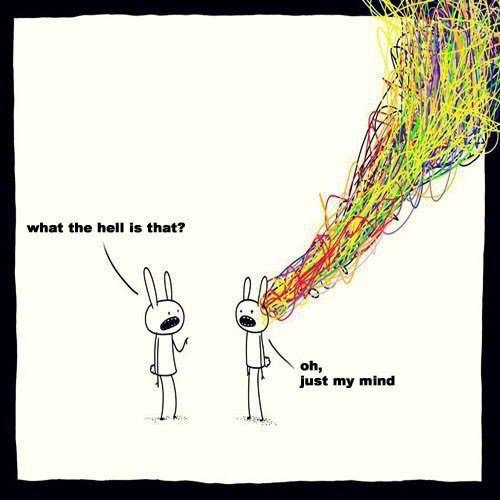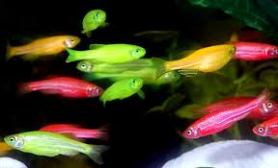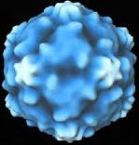Bipolar & ME: Part 3. Treatment
First off: apologies for the gap between postings. I’ve been a combination of on holiday, depressed, hypomanic (not “full” manic though, yay), stressed, ill, and fatigued/exhausted. I will try and be better. Anyway, onto the blog post!
Treatment!
Well, where to start. Like any mental illness, most kinds of treatment can be broadly split into two:
- Talking therapies, including
- CBT (Cognitive Behavioural Therapy)
- CAT (Cognitive Analytical Therapy)
- Psychoeducation Groups
- Medication, including
- Antidepressants
- Mood stabilisers
- Antipsychotics
- “Other”
By no means is this list exhaustive, but I’m just going to cover the ones mentioned because not only are they the most common, they’re also things I have either knowledge or direct experience of.
NOTE: I think I’ve made the point in earlier posts that mental illness can present in varying ways. We are all individuals, even if we have the same illness. THE FOLLOWING INFO IS JUST MY KNOWLEDGE AND EXPERIENCE ONLY. SPEAK TO YOUR PSYCHIATRIST/PSYCHOLOGIST/DOCTOR ETC. BEFORE CHANGING MEDICATIONS OR TREATMENT.
- Talking therapies
So I admit here and now, I have not had the best experience of talking therapies so far. I tried counselling, was referred to CBT (that went terribly, though partly because I don’t think my therapist and I “gelled”, I might not have been ready for it, or whatever…but I had three sessions and was just sent back to my GP), tried ACT (Acceptance and Commitment Therapy) which was a group trialled at my university. It went better than CBT, and a lot of the ideas behind it made sense, but I’m not sure I managed to take enough of it on-board seeing as it was during my final year of university and I was basically one huge ball of stress/fatigue/badness.
I don’t know if it’s relevant, but I tried all of these methods before my eventual diagnosis of bipolar. Since diagnosis, I have been to a Psychoeducation group, and am on the LONG waiting list for CBT (and eventually CAT) with a clinical psychologist, as opposed to a wellbeing practitioner or therapist. I’ll update the blog after I have the treatment with my feelings on how it went, but I don’t expect it to be soon unfortunately). Since I have not had a full course of CBT or any CAT, I’m just going to provide some links so you can read about it from people with more knowledge on them:
http://www.nhs.uk/conditions/Cognitive-behavioural-therapy/Pages/Introduction.aspx
http://www.acat.me.uk/page/about+cat
The Psychoeducation group is pretty much what it sounds like; a group that helps educate you on your psychiatric/psychological condition. There was a group of us, maybe 9 or 10, who had all been diagnosed with bipolar (mix of I, II, cyclothymia), of varying lengths of diagnosis, treatment, experience and severity. This was particularly useful as I’d only been diagnosed for around a month or so, so learning what things I had been experiencing were actually due to this illness was eye-opening. You might expect this kind of thing to be incredibly depressing but surprisingly, I didn’t find it so. Yes, there were topics that were covered that weren’t exactly pleasant but we were given so many resources and a variety of methods to try and help us cope. No, they didn’t all work, and the paperwork we were given was a little overwhelming but I appreciated the variety because many of the things have really helped me. I know that for many people however, much of this course was too basic, as they’d lived with it so long that they knew all the symptoms and had tried most of the things we were recommended. I hope they didn’t think it was a complete waste of time, because their knowledge and experience was incredibly valuable to me. According to a talk given to the group I attend run by Bipolar UK, Psychoeducation groups have been shown to be one of the most helpful and beneficial groups for bipolar patients, in terms of helping them stay better for longer (I won’t go into the full details of that talk, though it was very good…maybe in another post).
- Medication
Ah. If there’s anything that causes more controversy, stigma, and newspaper articles than psych medications…well, OK, there are a lot of things that cause that, but you catch my drift. There’s a lot of misinformation, scaremongering, and stigma about medications for mental illness, and I can’t deny that there’s probably a whole lot of over prescription going on. (The reasons for that last thing are many, but generally underfunding of the mental health sector and understaffing of specialised doctors and therapists are two big ones). Medications are not the be all and end all, and god knows they don’t solve everything. However, for some people, medication can/will save their life. And for me, they allow me to live relatively safely and ‘normally’, hold down a job, etc. There are still life stressors that affect me and I have to watch out for them, but even when I do get ill, it’s significantly less severe than when I was not on medication.
Also, some medication carries more stigma than others, so don’t be put off if medication that helps you has a bad reputation from people that don’t understand, or have had bad experiences on it. For example, as well as a couple other medications for other ailments, I take Lithium and an antidepressant, Venlafaxine. Now Lithium is very well known, and it’s been around for a long time. It’s also very cheap, and has been shown to be incredibly beneficial at treating bipolar, and also significantly reducing suicidal behaviour. It also has a number of side effects, and can cause serious damage if not monitored closely (kidney and thyroid damage or even failure). Now I admit, I was scared off lithium initially. I was offered it a few years ago and I was pretty much of the mindset that I would try anything but that. This was, in part, due to the stigma, and to the research project I had done at university on it. (I do wonder what might have been different if I had tried lithium when I was first offered the chance, but there’s nothing that can be gained from wondering “what if?”). So whilst I heartily recommend researching medications before you decide to take them, don’t be so informed that you scare yourself away from something that could potentially really help you.
I think a good rule of thumb is if the side effects make you feel worse than the illness itself, they’re probably not for you. However, it is often very difficult for the ill person to notice if they are feeling better, as we (ill people) have a tendency to see and focus on the bad far more than the good. I had someone tell me they could tell exactly when my medication was changed to my current ones because I was so much better. I hadn’t realised it was such a big difference so their perspective was really helpful.
- “Other”
Please notice I’ve put this in little “air quotes” as these are not prescribed treatments, but anecdotally, there’s sometimes things we can do for ourselves to encourage longer times in remission.
While many people with bipolar and other mental health illnesses self-medicate using alcohol, illicit drugs etc., I can’t say I can recommend either of these things. What I can say is that it’s completely understandable why people go down this route. But I’m going to try and focus on some other ways I/people/you can use to try and ease the struggle of mental ill-health.
It helps to have things that you can throw yourself into when you start feeling the first signs of depression or (hypo)mania. Depending on your personality, these things will differ hugely, and I have different activities to help with different directions of mood. Colouring helps with creeping manic symptoms, as it gives me something to completely focus on, and I can jump to any number of different books, colour schemes, pages, but it often helps my head slow down eventually. When I’m feeling the beginnings of a downward mood, I try and go skating/go to derby practice (if physical health allows), or go for a walk, or go throw my phone folder of silly pictures I’ve saved and send them to close friends to strike up a conversation. Basically, anything to stay out of my head/bad thoughts, something to stop the downward spiral before it fully starts. If I’m veering towards the manic side however, these actions would be things to avoid, as sport/exercise is actually a big thing I’ve noticed sends me into hypomania (mania, before my medication).
I’m sure a lot of people will see the things I’ve listed and think it’s twee or useless things they’ve been told before, but all I can say is that they’ve helped me. I think roller derby has been helpful for me as the continuity of practice and knowing my attendance is monitored helps me regularly go out and mix with people, and skate/do physical activity when possible. Structure is hugely important to me, so a hobby with classes or regular practices was a big bonus and ones of the reasons I stick with the hobby even when it seems “crazy” for someone like me to do.
Obviously nothing in this section is actually ‘treatment’ per se, but I think living with mental illness means learning how to treat you. You have probably heard of self-care recently, but no one really says what it is. And that’s often because it varies person to person. So think, what makes you calm, what do you need when everything is getting on top of you? Think about this, and try and stick to this self-care plan, paying particular attention to it when life throws a curveball at you.
There is just one of these blog posts left in this series, but I have another one I’ve been working on to post before I finish the last of my bipolar posts.
Let me know in the comments if you think I’ve missed something from my treatment ideas, or if you have another PoV on the topic. Always love to hear from you!








